The Best Films of 2021 (Keith's List)
It was a year of interstellar messiahs, truffle pigs, Bronco Henrys and more.
It’s been a while since I’ve written a proper best-of list for publication, This one differs from the 2021 lists I’ve turned in for various polls throughout December, but it still feels unfinished thanks all the films I’ve meant to get to but haven’t yet been able to. (Hello, Petite Maman.) It was a scary year for movies in some respects (and for the world in general) but, wow, did we get a lot of great films anyway. So, without further ado, let’s get into the best of them (as determined by me, at this moment, but, as always, subject to change).
The Top 15
15. The Disciple (dir. Chaitanya Tamhane)
This second feature from Tamhane is set within and filled with details specific to the world of Indian classical music, but it belongs to a broader spectrum of films exploring the sacrifices it can take to create art, and whether those sacrifices are ultimately worth it. Its answer, insofar as it arrives at one, isn’t all that comforting. Aditya Modak stars as a talented young singer dedicated to becoming part of a musical tradition that might demand more of him than he can give—and which, however beautiful, may continue a long fade into obscurity with or without his help.
14. Dune (dir. Denis Villeneuve)
It’s easy to lament the blockbusterization of American cinema and the way big event films dominate both the multiplexes and the conversation. Plenty of 2021 films reinforced the wisdom of staying wary of a film world in which bigness exerts such a powerful gravitational pull. (Welcome to the MCU, Chloé Zhao?) But some movies call for a massive scale and a director who understands how to make films that demand to be seen on the biggest screens in town. Dune finds Villeneuve serving ably as both field marshal and storyteller with this second theatrical stab at Frank Herbert’s revered (but dense and tough-to-adapt) science fiction classic. Half of it, anyway: in a gamble announced by the title card, this is Dune: Part One, with a second part’s existence contingent on whether or not this one found an audience. Fortunately, the gamble worked.
The Reveal is a reader-supported newsletter dedicated to bringing you great essays, reviews and conversation about movies (and a little TV). While both free and paid subscriptions are available, please consider a paid subscription to support our long-term sustainability.
13. The Worst Person in the World (dir. Joachim Trier)
Those fanatical about truth in advertising should stay away from the latest from Norwegian director Trier. In what ought to be a breakout performance, Renate Reinsve plays the not-awful-just-directionless Julie, a woman unsure what she wants to do with a life adrift in a world that’s not eager to provide much guidance. Over the course of the film, she bounces between careers and relationships, worries about the environment, wonders why she doesn’t want children, turns 30, and slowly struggles toward a sense of understanding that’s more bittersweet than comforting. Trier divides the film into chapters, some of which—a party sequence in which a flirtation threatens to tip over into infidelity, a troubling drug experience, and a Gen Xer’s monologue about the vanishing world of his youth—play like they should be placed in a time capsule for future generations trying to understand the ennui and confusion of the early 21st century.
12. Flee (dir. Jonas Poher Rasmussen)
This animated documentary recounts the story of Rasmussen’s longtime friend Amin (not his real name), an Afghan refugee whose journey to Denmark included a long stop in Russia and required acts of subterfuge that he’s never even shared with his closest friends. Driven by Amin’s own account of his journey—which coincided with a growing understanding of his sexual identity—the film uses simple but effective animation to capture the terror (and occasional outburst of joy) of a life lived in fear even after reaching safety.
11. The Lost Daughter (dir. Maggie Gyllenhaal)
Gyllenhaal makes her directorial debut with this adaptation of an Elena Ferrante novel about an academic (Olivia Colman, with Jessie Buckley playing the role in flashbacks) whose vacation in Greece takes an unexpected (and sometimes perilous) turn to the reflective when she first annoys then befriends some shady fellow vacationers, including a young mother played by Dakota Johnson. Gyllenhaal’s direction finds a consistently unsettling tone even in the midst of a seeming paradise, and Colman delivers a performance of remarkable elusiveness and complexity as a woman still struggling with the consequences and mixed feelings resulting from choices made years before.
10. Passing (dir. Rebecca Hall)
Continuing a great year for actors making directorial debuts, Hall’s adaptation of Harlem Renaissance writer Nella Larsen’s novel about lives lived on the edge of New York City’s color divide revolves around a pair of extraordinary performances from Tessa Thompson and Ruth Negga and uses striking black-and-white photography to explore a world filled with indeterminate spaces, unspoken boundaries, and ambiguous gestures. It’s a potent, haunting debut that rewards repeat viewings.
9. The Green Knight (dir. David Lowery)
Speaking of ambiguity, it’s baked into the design of Lowery’s adaptation of the 14th century Arthurian poem Sir Gawain and the Green Knight that’s long baffled and delighted Intro to Medieval Lit students. Dev Patel plays an inexperienced would-be hero whose efforts to live up to a bargain struck as part of a potentially fatal Christmas game turns into a frightening, sometimes near-psychedelic journey through the untamed stretches of Arthur’s kingdom. Along the way, his encounters touch on issues of sexual politics, spirituality, environmentalism and more. What does it all mean? The film seems happy to let viewers decide for themselves, up to and including its ambiguous ending.
8. Bergman Island (dir. Mia Hansen-Løve)
A pair of married filmmakers’ (Vicky Krieps, Tim Roth) working vacation on Sweden’s Fårö Island—used as a home base and frequent setting by Ingmar Bergman—turns into an exploration of the sources of creativity and what keeps relationships alive. Mia Wasikowska co-stars as the protagonist of an imagined film within the film that slowly, subtly begins to wrap itself around the main narrative as it wills itself to existence. The stories we create and the lives we live can be slippery that way.
7. A Hero (dir. Asghar Farhadi)
Few directors are as skilled as Farhadi at easing viewers into moral quagmires inch by inch until, like his protagonists, they can’t see a way out. In the director’s latest, Amir Jadidi plays Rahim, a man who’s given a tough-to-resist but ethically dubious way to repay an impatient creditor while on a two-day pass from a debtors’ prison. Though the repayment could be the point at which his bad luck turns, he can’t commit to the action. And that’s when his troubles truly begin. Farhadi piles one complication atop another until the already precarious Jenga tower of Rahim’s life grows dangerously wobbly, allowing A Hero to explore questions of justice and morality in its shadow, as well as how real life has a way of complicating absolute ideals.
6. Licorice Pizza (dir. Paul Thomas Anderson)
Anderson’s early ’70s coming-of-age story shares its name with a chain of California record stores that were unavoidable in the San Fernando Valley of his youth, but the title also captures the flavor of nostalgia favored by the film: a combination that’s both bittersweet and a little unsavory. Against a backdrop of changing times, a child-actor-turned-teenage entrepreneur (Cooper Hoffman) forms a fractious, ill-defined, but invaluable relationship with an aimless photographer’s assistant (Alana Haim) who’s well past her high school years but still living at home. Their connection starts to look like a refuge of innocence in the middle of an adult world seemingly determined to let them down.
5. Parallel Mothers (dir. Pedro Almodóvar)
Almodóvar’s follow-up to the semi-autobiographical Pain and Glory finds him using the raw material of melodrama to create a haunting exploration of what happens when we try to bury the truth—be it via covering up history or a more intimate sort of lie. Penélope Cruz and Milena Smit co-star as single mothers-to-be with conflicting attitudes toward motherhood. When they meet in a maternity hospital, their lives begin to overlap in ways neither could have foreseen.
4. West Side Story (dir. Steven Spielberg)
A new version of West Side Story, even one directed by Spielberg, didn’t sound all that necessary, but this remake immediately justifies its existence with a sweeping opening shot of New York rubble and the desperate (and tuneful) characters determined to claim it as their own. Spielberg’s kinetic, emotional approach to the material never falters, aided by some sensitive updates to the script courtesy of Tony Kushner, a heartbreaking turn from original cast member Rita Moreno, and what should be star-making performances from Rachel Zegler, Mike Faist, and Ariana DeBose.
3. Drive My Car (dir. Ryusuke Hamaguchi)
Grief, unexpected sources of creative inspiration, the difficulty of communicating and making connections, and the care of vintage automobiles all factor into Hamaguchi’s expansive-yet-intimate adaptation of a Haruki Murakami short story. Hidetoshi Nishijima stars as a theater director renowned for his multilingual adaptations of international plays who reluctantly acquires a chauffeur (Tōko Miura) while staging Uncle Vanya in Hiroshima. With patience and care Hamaguchi depicts a relationship initially defined by silence as it creeps toward an uneasy intimacy.
2. Pig (dir. Michael Sarnoski)
A peek behind the velvet rope (a.k.a. the door to my basement office) of the professional life of yours truly: this past spring, a publicist from Neon, aware of my forthcoming book Age of Cage: Four Decades of Hollywood Through One Singular Career (in stores March 29th but available to preorder now), reached out about their then-forthcoming film Pig. At that point, I’d essentially finished the book but, of course, I wanted to see Cage’s latest. That said, Cage has made a lot of movies in the last decade that don’t always live up to their full potential, to put it kindly. Sometimes you get a Mandy. Other times (and more often) you get a Humanity Bureau (or an Inconceivable or a Kill Chain, etc.). I wasn’t sure what I was in for, especially since its basic premise sounded like a lot of other tales of revenge, albeit with a porcine twist. What a pleasure to encounter a film that announces the arrival of a director already assured enough to trust viewers to follow a story of grief, creativity, and forgiveness, or a film that understood the full extent of Cage’s abilities as a dramatic actor (and found extra resonance by casting him in a role with echoes of his own life and career).
1. The Power of the Dog (dir. Jane Campion)
Jane Campion returned to feature filmmaking with an adaptation of a Thomas Savage novel that sometimes resembles a dry black comedy take on Death in Venice set against the fading of the Old West. Benedict Cumberbatch stars as a self-appointed embodiment of American masculinity whose crudeness is rivaled only by his cruelty. Kodi Smit-McPhee co-stars as a fey target of his sadistic streak—but perhaps not the victim he might at first appear to be. A dreamlike atmosphere (created in part by New Zealand locations that look nothing like the Montana setting but work beautifully as a movie’s idea of Montana) and the latest in a string of remarkable Kirsten Dunst performances help make this film haunting and mysterious in ways that extend far beyond its shocking ending.
Honorable Mention (in alphabetical order): Annette, Barb and Star Go to Vista Del Mar, Benedetta, The Card Counter, C’Mon C’mon, The French Dispatch, Lamb, The Last Duel, Last Night in Soho, Malignant, Nightmare Alley, Red Rocket, Saint Maud, Shiva Baby, Summer of Soul, The Velvet Underground.
Lest We Forget: Two remarkable movies—Judas and the Black Messiah and The Father—both fell into a between-years netherworld created in part by the strangeness of a release schedule dictated in part by Covid-19. Both were up for Academy Awards last year, which is part of why they don’t feel like 2021 films. But they certainly deserve a mention as part of the 2021 movie year.
Performance of the Year: Olivia Colman, The Lost Daughter
Apart from flashbacks in which her character is played (quite memorably) by Jessie Buckley, Colman’s rarely off screen in The Lost Daughter. We learn a lot about her character’s life and history but little about who she is or why she does what she does, in part because, even well into middle age, she remains a mystery to herself. Though the film opens with a dramatic moment it won’t return to until the final scenes, the real tension comes from watching a character stumble as she tries to understand what’s made her the woman she’s become.
Scene of the Year: “None of it is real,” Pig
With an unnerving intensity and some well-chosen words, Nicolas Cage’s Rob, the mysterious, disheveled protagonist of Pig, dismantles the life of a pretentious, trend-chasing restaurateur—and in the process maybe gives him the tools to put it back together.
Reason for Hope: The films of 2021
I’ve been doing this for long enough that worries over the movies’ perilous future have become comically predictable even as they mutate from year to year. That doesn’t make it any less real. Hollywood is obsessed with franchises, movie theaters face mounting uncertainty, the pandemic will likely change habits forever in ways we can’t anticipate—all of that is real. Not only did I struggle to narrow this list down to fifteen, I probably could have tacked on another fifteen after the fifteen that served as my honorable mentions. (To say nothing of some really promising-looking titles I ran out of time before getting to.) It was, in many respects, a troubling year for The Movies yet, once again, a great year for movies.
Reason for Despair: Empty theaters
And yet what does it mean when audiences don’t turn out for West Side Story, Nightmare Alley, or even a pretty clever continuation of The Matrix? The tumbleweeds blowing through houses playing these films as Spider-man packs ’em in next door may not bode well.
Special Effect: The Eyes of the Mentat, Dune
One of the most striking effects in Dune is also one of the simplest. With no warning, Thufir Hawat (Stephen McKinley Henderson), a kind of human computer known as a Mentat, rolls his eyes to the back of his head as he performs a series of immense calculations at superhuman speed. It’s an unnerving visual but one presented so casually it becomes another reminder that we’ve entered a world that, however familiar it might look at times, is not our own.
Most Annoying Discourse: Scorsese vs. Marvel
One of the worst indications of the ways franchise culture has warped the discussion of movies is that every time the name of one of our greatest living directors comes up online, it inevitably leads to talk of how he feels about the Marvel Cinematic Universe. It’s a big enough world to have plenty of room for filmmakers with no interest in tights-and-fights and crowd-pleasing superhero movies (and all sorts of other films). Or it ought to be.
Most Anticipated Film of 2022: Crimes of the Future
Like Scott, I encourage everyone reading this to spend some time perusing David Hudson’s Criterion Current look at what’s to come in 2022. And, if you’re like me, you might find yourself rereading this description of Crimes of the Future, David Cronenberg’s first film since 2014, over and over again: “The new film will take us to a not-so-distant future when humanity begins to biologically alter itself in order to adapt to the synthetic environment we’ve created. Some embrace this ‘Accelerated Evolution Syndrome,’ while others try to maintain control over it.” For a while, it looked like Cronenberg might never make a movie again. Now it sounds like he’s returning with the Cronenbergianist project imaginable.




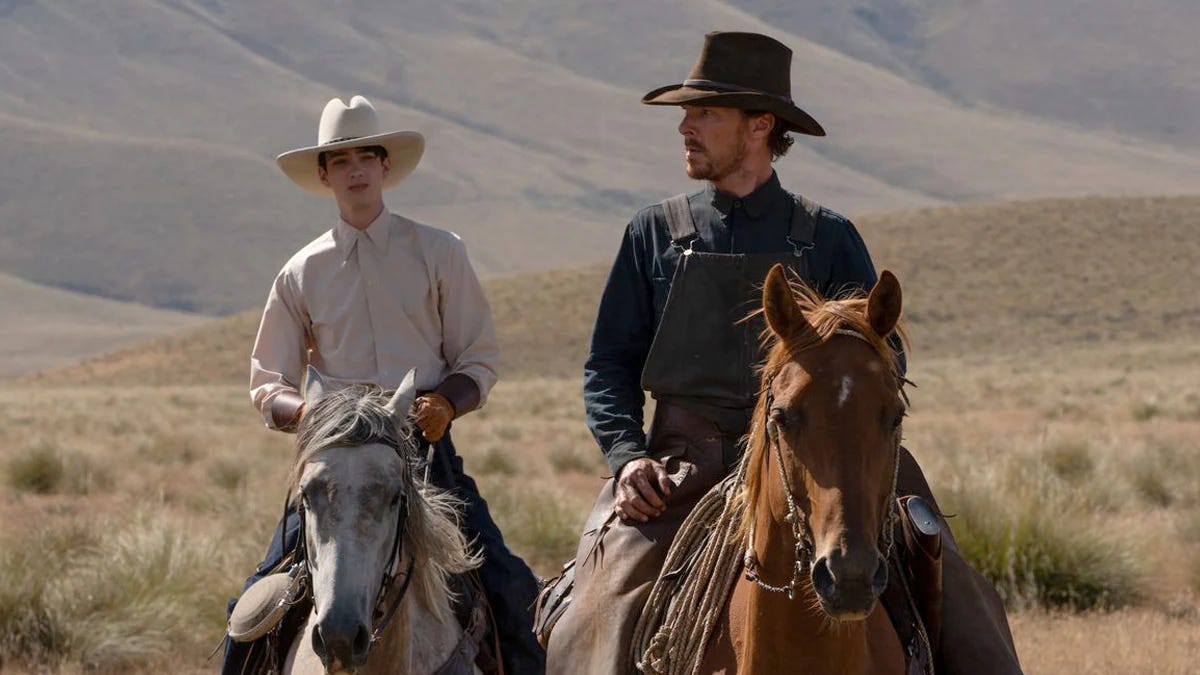

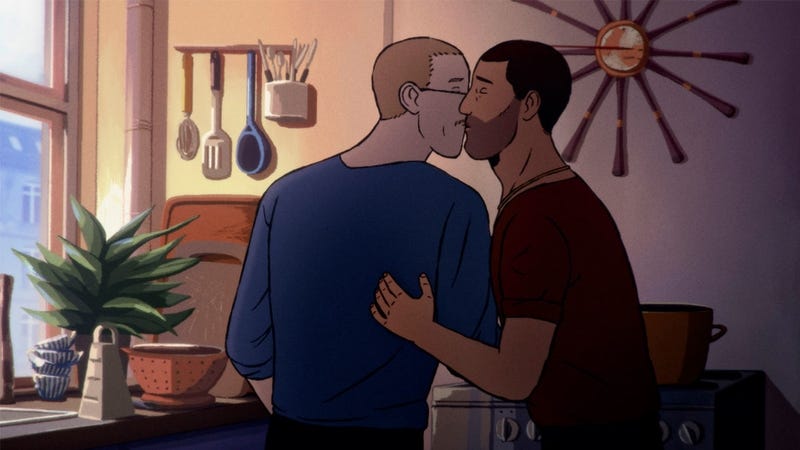
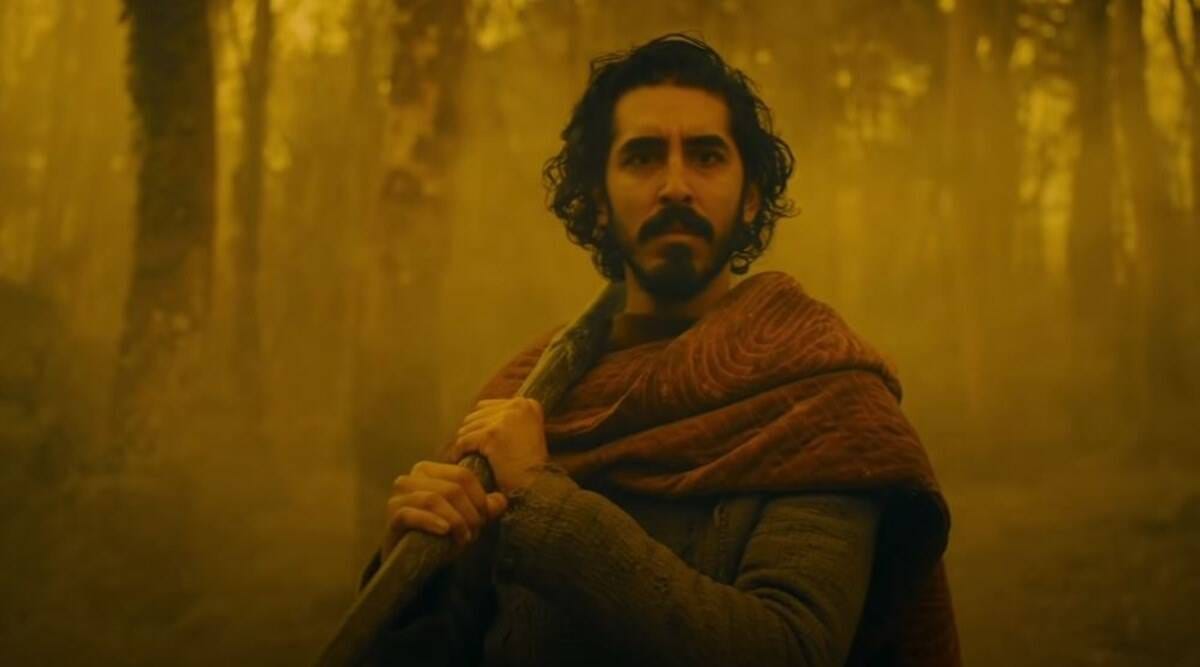
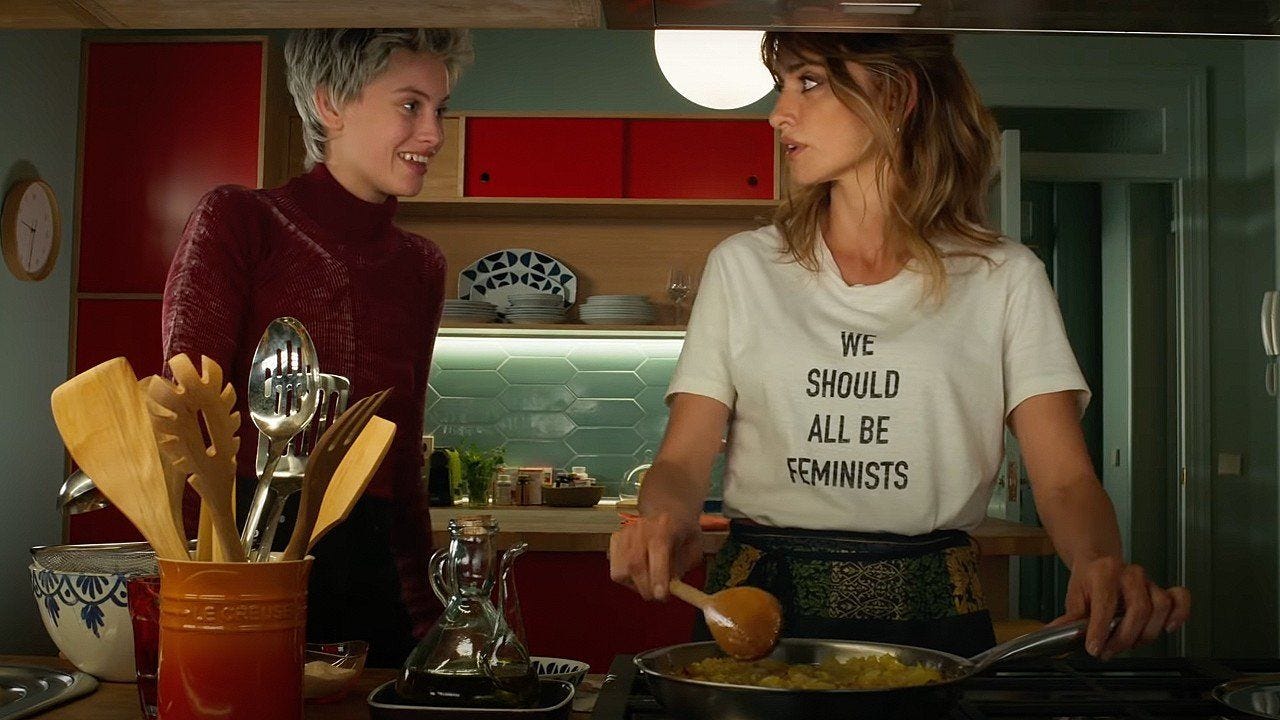

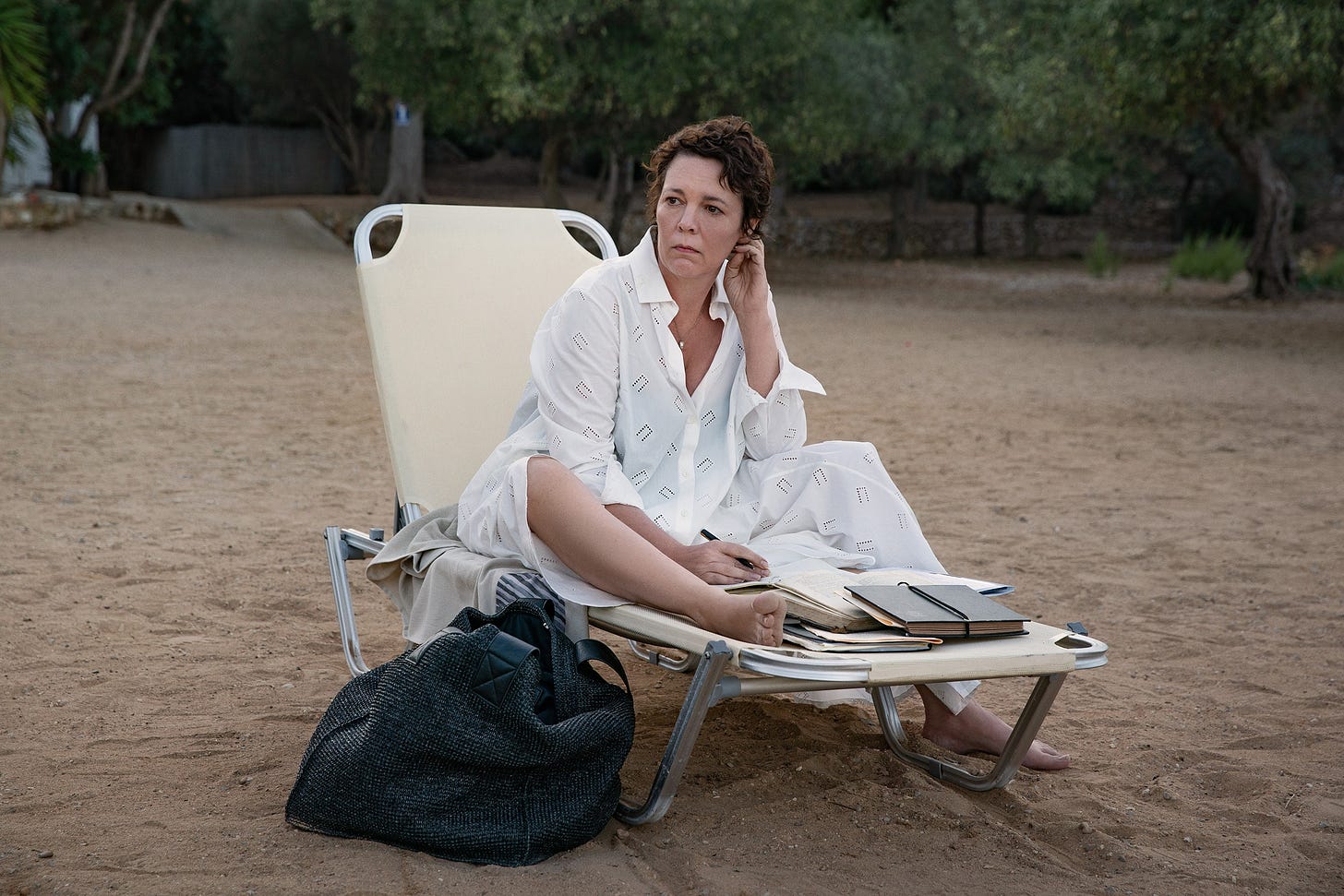
The one I'm most excited to see is Drive My Car. Haruki Murakami is my favorite author, and I fondly remember that short story and the rest of the collection that Hamaguchi apparently draws from. It just sounds lovely. Thankfully, it just got announced to play here in Portland starting in a couple weeks! I was afraid it wouldn't even come to theaters.
Kind of a funny coincidence that both your and Scott's lists here are seemingly identical to when you recorded the NPS top ten show, with the one exception in both cases being the addition of A Hero. Only makes me more excited to see that one, and Parallel Mothers too, though it looks like I'll have to wait for the VOD releases of both with cinemas closed here in Toronto for the next few weeks.